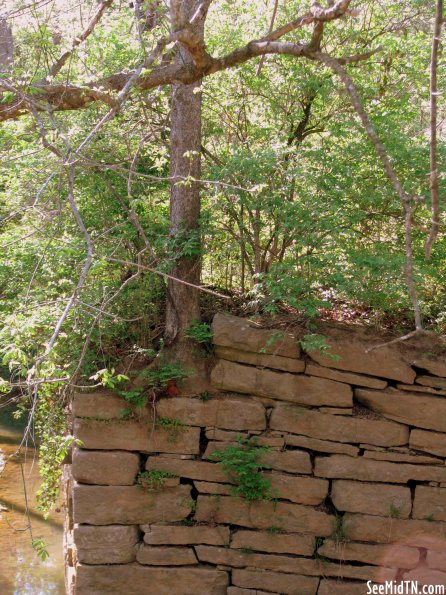
In 1801, travelers between Nashville and Natchez were utilizing the Trace more and more, and the primitive state of the roadway made each journey a harrowing experience. The army did not complete improvements to the full length of the Trace but did make significant improvements in Middle Tennessee. For most of the improved area, there was eight feet width of smoothed ground for the benefit of horse and foot traffic with an additional eight feet of cleared trees and underbrush. Bridges were built across streams to eliminate the inconvenience of crossing fords. One such bridge was in Williamson County at the crossing of a tributary of the Harpeth River called Brown's Creek (or at the time known as Donelson's Creek). Browns Creek seen here at one time was a boundary of a prehistoric Indian village in an area today known as Old Town. The entire bridge survived until some time in 1988, but today only the northern limestone abutment remains. This is considered to be the only site on the Natchez Trace in Williamson County that retains historic integrity and was placed on the National Register of Historic Places. It is easy to find today as a spot where the road named Natchez Trace parallels the Harpeth River.